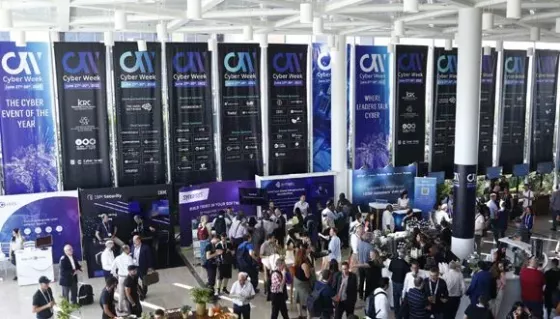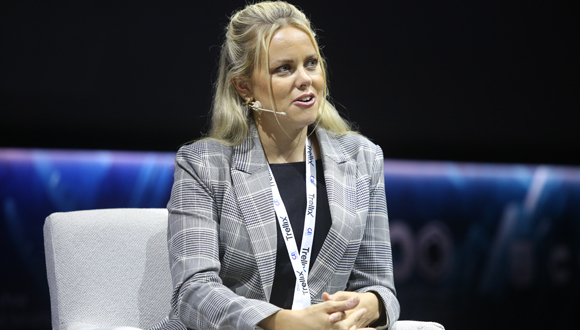
Tackling a Worrying Rise in Cyber Crimes and Warfare
Israel’s 12th annual Cyber Week highlights critical need for coordinated response.
Israel’s 12th Annual Cyber Week Conference was attended last week by 300 speakers, 7000 in person and 2000 online attendees from 80 countries. The speakers included top Israeli government figures such as then Prime Minister Naftali Bennett and Defense Minister Benny Gantz; leading American and British cyber figures, including Chris Inglis, the National Cyber Director at the Executive Office of the President at the White House and Lindy Cameron CEO of the British National Cyber Security Centre, and security executives from large companies, such as Walmart, SolarWinds,Apple and Netflix.
TAU researchers presented different academic perspectives on cybersecurity challenges, demonstrating the broad interdisciplinary scientific research on cybersecurity at TAU: Prof. Eran Toch from the Department of Industrial Engineering on “The Science of Cybersecurity in Organizations: Why is it so hard and what it takes to do it right”; Prof. Niva Elkin-Koren from The Buchmann Faculty of Law on “Digital Surveillance: Rethinking the Design Approach” and Prof. Yehuda Afek from the Blavatnik School of Computer Science on “Securing the DNS System.”
This year’s gathering took place against the backdrop of unprecedented cyber challenges and events including Russia’s war on Ukraine. Speakers described a dramatic and concerning rise in cyber warfare as well as cybercrime – cyber-related damage is predicted to hit $10.5 trillion annually by 2025, while cybersecurity spending on data protection and risk management could reach $172 billion globally in 2022. Yet they also expressed hope in the effectiveness of properly implemented defenses and evolution in defensive cyber techniques to meet the challenge.
The Human Aspect of Cyber
Ira Winkler, CISSP, Chief Security Architect of Walmart, outlined the important role government plays saying, “at a high level, governance tells people how to do things correctly with cyber security at the forefront.” He also recognized the need to account for the human aspect of cyber and to be realistic when devising and implementing strategy, “A user is as much as part of the system as a computer. Stop expecting people not to click on suspicious content, but rather have a strong network protecting them.”
The human face of fraud victims was highlighted through Norwegian Netflix star, Cecilie Fjellhøy, from “Tinder Swindler,” who was scammed of hundreds of thousands of US dollars by a man she knew as Simon Leviev. Fjellhøy uses her own experience to fight for justice for fraud victims around the world, and discussed the subject of “the day after” for those affected and what we as a society can learn from it.

Cecilie Fjellhøy from “Tinder Swindler used her own experience to speak up for fraud victims (Photo: Chen Galili)
In contrast, self-professed “Hacker, Helper and Human,” Jason E. Street, VP Infosec, Sphere NY, USA, illustrated weak points – human factors were highlighted – of companies and institutions with regard to security breaches. Street showed video footage of himself strolling into banks and compromising their security on the highest level in next to no time. He reminded those in the audience who were shaking their heads and laughing that their companies could be next in line, and urged them to prepare for such a scenario.
Terrorists with Keyboards
Israel’s former Prime Minister Naftali Bennett pointed out how “inevitably cyber is going to become one, if not the most, prominent dimensions of future warfare,” while drawing attention to the vital need for global collaboration in the cyber sphere. In cyber, he reasoned, the same actors who attack one company or country are often attacking others at the same time. Information sharing can help all vulnerable parties defend themselves.
Israel’s Minister of Defense, Benny Gantz, outlined the increasing shift of conflicts to the cybersphere, noting that bad actors are already carrying out cyberattacks, particularly Iran. The country uses new [cyber] proxies, who Gantz referred to as “terrorists with keyboards,” in addition to their direct actions. He stressed the need for private companies to follow government guidelines and cooperate on a response, stressing that “Iran is first a global challenge, then it is a regional challenge, and only finally is it a threat to the State of Israel. The same goes for the cyber dimensions – the same framework of cooperation vis-a-vis Iran is expanding to cyber.”

Then Israeli Prime Minister Naftali Bennett speaks at Cyber Week 2022 conference at Tel Aviv University (Photo: Chen Galili)
About Cyber Week
Cyber Week is a leading international cybersecurity event that provides a unique opportunity for experts from industry, government, military and academia to share their knowledge about the challenges and opportunities in the field. Cyber Week is jointly held by the Blavatnik Interdisciplinary Cyber Research Center (ICRC); The Yuval Ne’eman Workshop for Science, Technology and Security at Tel Aviv University; and the Israeli National Cyber Directorate under the Prime Minister’s Office.
Related posts







One in Three Arab Israelis Prefer External Governance for Gaza Post-War


